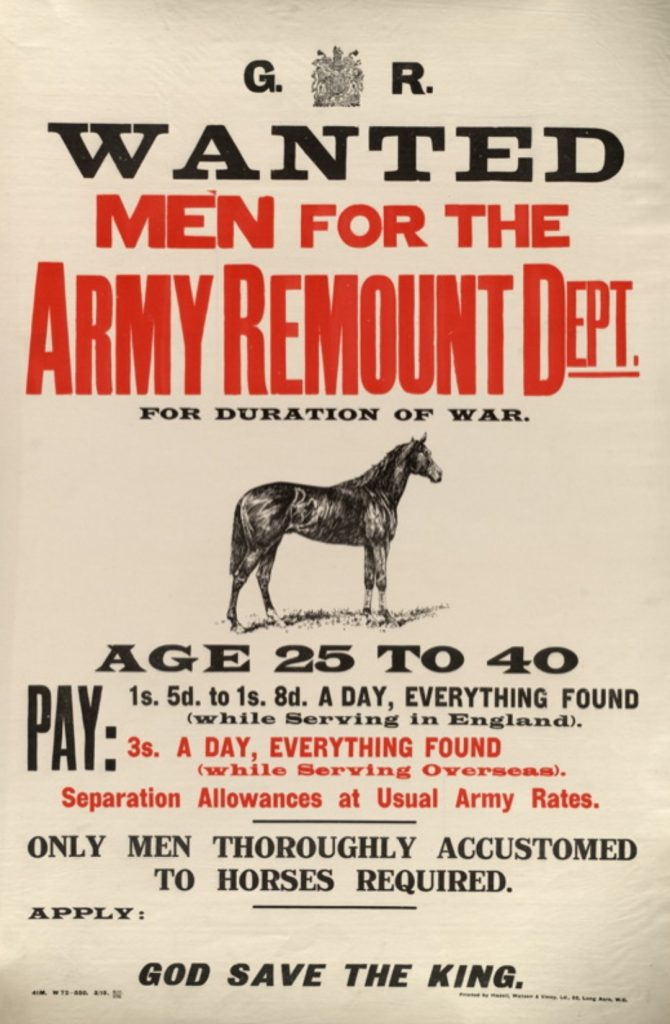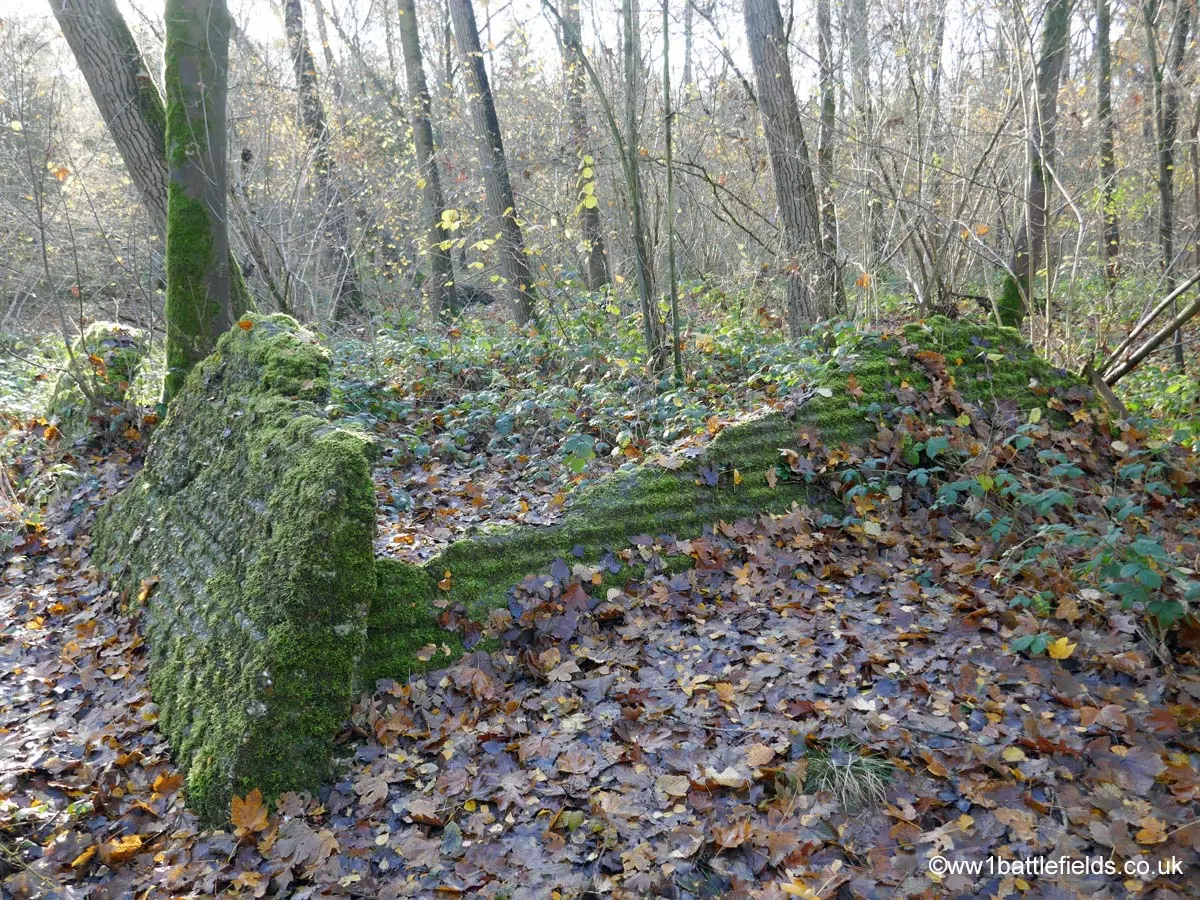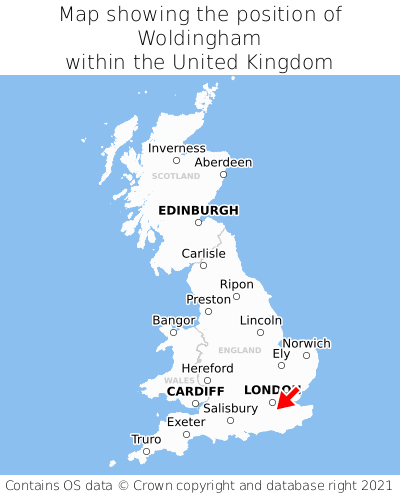The events of this novel take place in 1915. The Hunter family live in a big house called The Elms in Northcote, which is a fictional village.
The novel starts in January and Jack is fighting in Ypres. The Battle of Ypres was a series of engagements during the First World War, near the Belgian city of Ypres, between the German and the Allied armies . During the five engagements, casualties may have surpassed one million.
Later in the novel Jack is witness to the use of poisonous gas from the part of the German army. It is in the econd Battle of Ypres (22 April – 15 May 1915) when the first mass use of poison gas by the German army. There were around 100,000 casualties.
Sadie helps training horses for the war. She and John Courcy are good friends, and he is part of the Army Remount Service. The Army Remount Service was the body responsible for the purchase and training of horses and mules as remounts for the British Army between 1887 and 1942.
The novel refers to the bombing of different towns, and the first three towns mentioned are Great Yarmouth, Sheringham and King's Lynn.
Sheringham was hit by two bombs at 20:30 GMT on 18 January 1915. Four people died and many were injured in Great Yarmouth, King's Lynn and surrounding villages.

Laura and Louisa, who believe in the suffragist cause, talk about Sylvia Pankhurst and how she is helping in the war effort. Estelle Sylvia Pankhurst (5 May 1882 – 27 September 1960) was an English feminist and socialist activist and writer. Following encounters with women-led labour activism in the United States, she worked to organise working-class women in London's East End.
Lord Kitchener is mentioned in the book often. Field Marshal Horatio Herbert Kitchener, 1st Earl Kitchener (24 June 1850 – 5 June 1916) was a British Army officer and colonial administrator. Kitchener came to prominence for his imperial campaigns, his involvement in the Second Boer War,[1][2] and his central role in the early part of the First World War. At the outset of the First World War, the prime minister, Asquith, quickly had Kitchener appointed secretary of state for war.
The people in Northcote talk about the Belgian refugees that have arrived in the country.
Louisa and Laura join the WPS, that is, Women Police Service. The Women's Police Service (WPS) in the UK was a national voluntary organization of women police officers that was active from 1914 until 1940. As the first uniformed women's police service in the UK, it made progress in gaining acceptance of women's role in police work. In 1914, Nina Boyle and Margaret Damer Dawson met when Damer Dawson was working for the Criminal Law Amendment Committee in 1914. Both Boyle and Damer Dawson had observed the trouble faced in London by Belgian and French refugees, particularly the danger of their being recruited for prostitution on arrival at railway stations. They were also concerned about existing prostitutes loitering near railway stations used by the increasing number of servicemen passing through the capital. Boyle and Damer Dawson sought and gained the approval of Sir Edward Henry, Commissioner of Police of the Metropolis to form the Women Police Volunteers (WPV) which would train women to patrol London on a voluntary basis. The volunteers would offer advice and support to women and children to help prevent sexual harassment and abuse.Everybody talks about the British Victory at Neuve Chapelle. The Battle of Neuve Chapelle (10–13 March 1915) took place in the First World War in the Artois region of France. The attack was intended to cause a rupture in the German lines, which would then be exploited with a rush to the Aubers Ridge and possibly Lille. The British attackers broke through German defences in a salient at the village of Neuve-Chapelle but the success could not be exploited.
Sir John French was the Commander-in-Chief. Field Marshal John Denton Pinkstone French (28 September 1852 – 22 May 1925), known as Sir John French from 1901 to 1916, and as The Viscount French between 1916 and 1922, was a senior British Army officer. French's most important role was as Commander-in-Chief of the British Expeditionary Force (BEF) for the first year and a half of the First World War.
Charles was station in Plug Street Wood. Ploegsteert Wood was a sector of the Western Front in Flanders in World War I, part of the Ypres Salient. It is located around the Belgian village of Ploegsteert, Wallonia. After fierce fighting in late 1914 and early 1915, Ploegsteert Wood became a quiet sector where no major action took place. Units were sent here to recuperate and retrain after tougher fighting elsewhere, and before returning to take part in more active operations.
Elise, Edward's client, comes from Tournai. Tournai or Tournay is a city and municipality of Wallonia located in the Province of Hainaut, Belgium. Beth takes Diana to Lucile's to buy lingerie. This is a fashion house belonging to Lucy Duff-Gordon, wife of Sir Cosmo, both survivors of the Titanic. Lucy Christiana, Lady Duff-Gordon (13 June 1863 – 20 April 1935) was a leading British fashion designer in the late 19th and early 20th centuries who worked under the professional name Lucile.
On 7 May the Lusitania was sunk by the German army. RMS Lusitania was a British ocean liner launched by the Cunard Line in 1906. Lusitania was sunk on 7 May 1915 by the German submarine U-20, 18 km off the Old Head of Kinsale, Ireland, killing 1,197 passengers, crew and stowaways. The sinking occurred about two years before the United States declaration of war on Germany, but significantly increased American domestic public support for entering the war.
When Bobby first enlists, he is stationed in Woldigham, Surrey. Woldingham is a village and civil parish high on the North Downs between Oxted and Warlingham in Surrey.
On May 15, Fisher, the First Lord of the Admiralty resigned in protest of the war campaign. Admiral of the Fleet John Arbuthnot Fisher,(25 January 1841 – 10 July 1920) was a British Admiral of the Fleet. He resigned on 15 May 1915 amidst bitter arguments with the First Lord of the Admiralty, Winston Churchill, over Gallipoli, causing Churchill's resignation too.
In this year the goverrnment formed a coalition with Asquith as Prime Minister. The Asquith coalition ministry was the Government of the United Kingdom under the Liberal prime minister H. H. Asquith from May 1915 to December 1916. It was formed as a multi-party war-time coalition nine months after the beginning of the First World War.
Charles dies in Festubert. The Battle of Festubert (15–25 May 1915) was an attack by the British army in the Artois region of France on the western front during World War I.
In 1915 the government passed a national registration act by which men and women had to registered as if in a census. The National Registration Act 1915 was an Act of Parliament in the United Kingdom.
The Act provided for the establishment of a register of every civilian in the country between the ages of 15 and 65. The objective was to deal with the labour crisis that arose because so many volunteers had joined the Forces that essential industries were left without key workers. The register was further intended to assist in efficient deployment of labour as the government imposed more controls on the workforce, and the forms listed any alternative trades for each individual, whether current or not.
David first sees action in the Battle of Loos. The Battle of Loos took place from 25 September to 8 October 1915 in France on the Western Front, during the First World War. It was the biggest British attack of 1915, the first time that the British used poison gas and the first mass engagement of New Army units.
Around this time there was a shortage of soldiers to fight, and one of the measures to promote volunteering was the Derby scheme. The Derby Scheme was introduced during World War I in Britain in the autumn of 1915 by Herbert Kitchener's new Director General of Recruiting, Edward Stanley, 17th Earl of Derby after which it was named. It used strong pressure tactics to try to pressure men regarded as eligible to serve in the military to voluntarily enlist. Every eligible man, aged 18 to 41, who was not in a essential occupation was required to make a public declaration of whether he would enlist immediately or defer his service to a later date, to appear when called. When the scheme was announced, some went to the recruiting office immediately, rather than wait for the inevitable.
There is a reference to the execution of Nurse Edith Cavell for helping Allied soldiers to escape. Edith Louisa Cavell (4 December 1865 – 12 October 1915) was a British nurse. She is celebrated for treating wounded soldiers from both sides without discrimination during the First World War and for helping some 200 Allied soldiers escape from German-occupied Belgium. Cavell was arrested, court-martialled under German military law and sentenced to death by firing squad. Despite international pressure for mercy, the German government refused to commute her sentence, and she was shot. The execution received worldwide condemnation and extensive press coverage.
Douglas Haig replaced John French as Commander-in-Chief. Field Marshal Douglas Haig, 1st Earl Haig (19 June 1861 – 29 January 1928), was a senior officer of the British Army. During the First World War he commanded the British Expeditionary Force on the Western Front from late 1915 until the end of the war.
























No comments:
Post a Comment